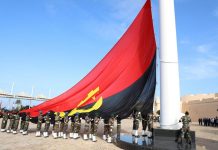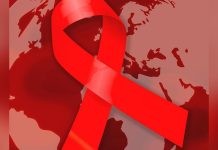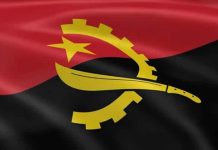Africa-Press – Angola. The African Charter on Human and Peoples’ Rights, of which Angola is a State party, completes, Tuesday, 27th of June, 42 years, since its adoption, in 1981, in Banjul (Gambia), a fact that the conferred the nickname “Banjul Letter”.
The cream of continental politicians at the time, creators of the project, hoped that the document, in force since 1986, would become an important contribution to the development of African Regional Law, filling a gap in the protection of the Rights of the Man.
Available documentation mentions that the historical traditions and values of African civilization influenced the States that created the project, as they translated, at least in terms of principles, an African specificity of the meaning of Human Rights.
However, the longed-for defense and protection of human life has been hurt, over the years, by the numerous pockets of armed conflicts, spread across the five regions classified by the African Union, namely North, Central, Southern, Western and Eastern.
Violence, closely linked to different political, religious, ethnic, tribal, inter-community, border, regional tensions, etc., etc., tends to lead to wars that mutilate and violate the principle of respect for Human Rights.
Such a scenario makes fertile ground for the culture of terrorism, as confirmed by victim populations in countries such as Sudan, Ethiopia, Libya, Somalia, Central African Republic (CAR), Democratic Republic of Congo (DRC), Burkina Faso, Mali and Mozambique, among others, prevented from at least dreaming of living in peace, perhaps of living.
African Commission on Human and Peoples’ Rights
The gray picture of Human Rights on the continent was recently confirmed by the president of the African Commission on Human and Peoples’ Rights (ACHPR), Rémy Ngoy Lumbu, during the body’s 75th Ordinary Session, held in May current year.
According to the final communiqué of the meeting, “the president conveyed the commission’s concern and disappointment in the face of the generalized setback of human rights on the continent”.
Meanwhile, he called on States to honor their commitments in terms of Human Rights, adopting appropriate legislative and policy measures that respond to the needs of their citizens.
The ACHPR is an African Union Organ, headquartered in Banjul, composed of 11 Commissioners elected by the AU Assembly. Among these is the Angolan Maria Teresa Manuela, as special rapporteur on prisons, conditions of detention and policing, and member of the Committee Against Torture.
In addition to other tasks entrusted by the Assembly of Heads of State and Government, the commission is especially concerned with the protection of human and peoples’ rights, promotion of human and peoples’ rights; interpretation of the African Charter on Human and Peoples’ Rights.
Constitution of Angola
The “road” through which the respect for Human Rights in Angola passes was widened with the end of the war, in 2002, having as North the Constitution of the Republic of Angola (CRA), whose Preamble highlights the respect and guarantee of fundamental human rights and freedoms.
The CRA – Supreme Law of the Republic of Angola – states, in its Article 1, that the country is a sovereign and independent Republic, based on the dignity of the human person.
“The Republic of Angola promotes and defines the fundamental rights and freedoms of man, whether as an individual or as a member of organized social groups, and ensures respect and the guarantee of their effectiveness by the Legislative, Executive and Judicial powers, their bodies and institutions , as well as by all natural and legal persons”, reads in Article 2.
Duties
Within the scope of its duties, the country regularly participates in sessions of the African Commission on Human and Peoples’ Rights (ACHPR), as happened in its seventy-fifth, held from 3 to 23 May.
At these events, States present their periodic reports on the implementation of the content of the African Charter on Human and Peoples’ Rights.
By the way, in its report, for November 2018/May 2019, the body gave Angola a positive note, for the creation of the National Migration Observatory, for the Approval of the National Migration Policy, as well as the National Strategic Plan for the Prevention and Combat of Corruption.
Adopted on June 17, 2019, by the Committee of Permanent Representatives of the African Union (PRC), in Addis-Ababa, the report also praises the enactment of the new Penal Code of Angola (January 2019), which incorporates protection standards of human rights and penalizes racial and other discrimination, female genital mutilation, torture and all forms of human trafficking.
It should be noted that, in June 2022, Angola deposited, at the headquarters of the African Union (AU), Addis-Ababa, the instruments of ratification of the protocols to the African Charter on Human and Peoples’ Rights, relating to the Rights of the Elderly and People with Disabilities in Africa.
A diplomatic source said, at the time, that the ratification demonstrates the engagement of the Angolan Executive in creating legal and material conditions to ensure the full affirmation of citizenship by all Angolans and the adoption of measures that guarantee the elimination of any type of discrimination and asymmetries. .
High Level Dialogue
The African Union, the largest political and diplomatic space on the continent, is increasingly reaffirming its belief in Angola’s potential in terms of solving the most varied problems that plague the “Continent Cradle of Humanity”.
This merit conquered by Angola once again seduced the AU to “deliver” to the country the holding of a major continental meeting, specifically its XII Edition of the High Level Dialogue on Democracy, Governance, Human Rights, Trends, Challenges and Prospects.
The event will take place in Luanda, in the second half of this year, and is part of an initiative of the African Governance Platform (PAG), an institutional mechanism of the African Governance Architecture (AGA).
For the Angolan authorities, this is yet another testament to the strategic importance they attach to issues of peace, democracy and the rule of law, particularly in the African regional context.
It is not excessive to recall that, during the 16th AU Summit on “Terrorism and Unconstitutional Changes of Governments in Africa”, held in Malabo, Equatorial Guinea, on 28 May 2022, the Angolan Head of State, João Lourenço, was designated “ AU Champion for Peace and Reconciliation in Africa”.
Angop
For More News And Analysis About Angola Follow Africa-Press






